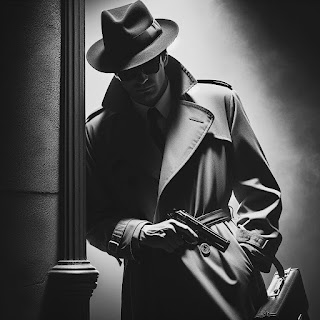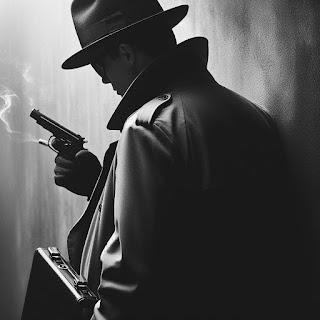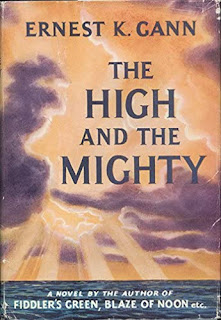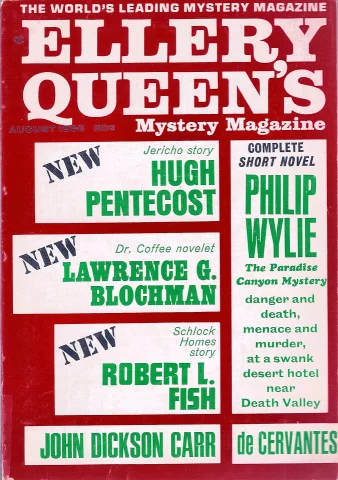Much has been said at this blog lately, by me and others, about anthologies. We've talked about everything from submission calls to themes to editing to publication schedules. That's probably because there seem to be so many anthologies being produced these days--especially crime anthos. And because of that, as I have also mentioned before, I've been doing more writing for anthologies over the past few years than for magazines.
But there are exceptions. At this moment, as luck would have it, I have short stories in the current issues of five magazines, and those particular markets have been among my favorites for a long time. I hope I've been good for them; I know they've been good to me.
Here they are, in no particular order:
1. Alfred Hitchcock's Mystery Magazine
One of the most pleasant surprises of my so-called literary career is the fact that I've been published fairly regularly in a magazine that I had read and enjoyed long before I started writing and submitting stories--and it was one of the first major publications to buy my stories, early on. My first sale to AHMM was a 1200-word short story called "Teamwork," in early 1996, bought by then-editor Cathleen Jordan--I think I ordered about two dozen extra copies and gave one to everybody I knew, including the mailman. Since then--mostly in the last ten years--I've sold AHMM a lot more stories, far less than those of my friends Rob Lopresti, R. T. Lawton, and Doug Allyn, but still enough to gladden my mystery-lover's heart. Probably because of the magazine's long response times, I don't submit as many stories to AHMM as I once did, but I still send them fairly often, and it's always a thrill when one is accepted.
My story in the current (Jan/Feb 2025) issue is called "The Cado Devil," an average-length short story that's almost all dialogue, set in the present-day Mississippi Delta. If you want details, here's a piece I did for AHMM's Trace Evidence blog that describes a little about the story. My next story, "Heading West," is scheduled for their May/June 2025 issue--it's about a young couple, a tornado, and a train robbery in the 1880s. Yes, the magazine does sometimes consider Westerns--I had another one published there a couple of years ago. As most of you know, AHMM's editor is Linda Landrigan, one of the kindest and most professional editors I've known.
2. Strand Magazine
My first sale to the Strand was in 1999, shortly after their "rebirth" here in the U.S.; the previous incarnation of Strand Magazine had been published in London for many years, featuring names like Conan Doyle and Agatha Christie. I've forgotten how and where I heard about the new Strand, but somehow I did, and snailmailed them a story called "The Proposal," about a Houston oil executive who'd hired a hitman to kill his wife. The editor contacted me by phone several weeks later to accept the story--it appeared in their second issue, and was the first of the many stories I've had published there. As I've mentioned before in discussions about markets and submissions, most of my Strand stories have been in the 3000- to 5000-word range, contain no otherworldly elements, feature more suspense than mystery, and are heavy on plot twists and reversals. (I'm not saying that's what everyone should aim for, but those things seem to have worked well for me.) So far, my Strand stories have been nominated for an Edgar, won two Derringer Awards, and were selected for three editions of the best-of-the-year mystery anthologies--so the magazine has been kind to me. Also, managing editor Andrew Gulli and fiction editor Lamia Gulli are a dream team to work with. Seriously.
My story in their current issue (#74, December 2024) is a 3200-word tale called "Lizzy in the Morning." It's set in the desert Southwest and includes a bank robbery, a scheming wife, a sneaky cop, a prison guard, an escaped convict, and long-buried loot. Again, as with almost all my Strand stories, it includes multiple surprises and has a plot that's more howdunit than whodunit. I hate it when I hear writers say a story "almost wrote itself," but this one did--it was great fun to put together.
3. Black Cat Mystery Magazine
I remember well the very first issue of BCMM, almost eight years ago--I loved the cover--and the magazine remains a quality publication. My first story for them was in that issue, a long (7600-word) Western called "Rooster Creek," one that I believe was submitted to then-editor Carla Coupe. In the years since then, one of my BCMM stories was selected for inclusion in Best American Mystery Stories and another won a Shamus Award, and for those honors I will always owe a debt both to BCMM and to editor Michael Bracken. The only thing tricky to remember about the magazine is that it's irregularly published and has a relatively short submission window, so I've always tried to have a story ready and waiting when those submission calls are announced. (Sometimes I can deliver, sometimes I can't.) At least one of my stories that was accepted by Black Cat Mystery Magazine was later diverted to the also-great Black Cat Weekly instead. More about BCW in a few minutes.
My story in the current BCMM issue (#15) is "A Cold Day in Helena," a heist tale set in a snowstorm and told through the POV of one of two bank thieves--and it'll probably be no surprise to readers that the bad guys' carefully-planned robbery doesn't exactly go as expected. This serves as even more proof to writers--and to me--that the "complication" part of the problem/complication/resolution template is usually the most important of the three. If my records are correct, I have another story, "Ship Island," coming up soon at BCMM. One final note: As many of you know, Michael is an excellent and (thank goodness) patient editor.
4. Woman's World
Yep, WW is still around, and as long as it is, I plan to send them a story now and then. Usually a mini-mystery; I've had better luck there with mysteries than with romance stories, over the years (they publish one Solve-It-Yourself Mystery and one Five-Minute Romance in every weekly issue). I first sold WW a story in the spring of 1999, back when both the mysteries and the romances were a bit longer and paid a bit more than they do now, and I've been fortunate enough to be a more-or-less regular contributor ever since. Most of my Woman's World stories have been installments in a mystery series featuring a smart, bossy, retired schoolteacher and a not-so-smart but good-intentioned sheriff who was once her student in their small Southern town--she helps him solve mysteries whether she's invited to or not, and (not so helpfully) corrects his grammar in front of his deputies. One reader told me my Angela Potts/Chunky Jones stories remind him of a Mayberry in which Aunt Bee is always trying to tell Sheriff Taylor how to do his job. I hope that was a compliment, but I'm not sure.
My story in the current (February 3, 2025) issue is called "Sure as Shootin'," and it involves a farmer, a trick-shot artist, a preacher, a computer guru, a psychic, and of course a puzzle that needs solving. I haven't yet seen the issue but found a picture of the cover, which--as expected--features an attractive lady and a pointer to weight-loss secrets. Editors I can thank for my good fortune at this magazine (and I do, sincerely) are Sienna Sullivan, Maggie Dillard, Patricia Gaddis, and the long-retired but fantastic Johnene Granger.
5. Black Cat Weekly
Among all these print markets, there's an online magazine that's also close to my heart. Several years ago Wildside Press began a daunting venture: a weekly e-zine featuring stories of several different genres--and it's been a great success. My first story there was called "Debbie and Bernie and Belle," back in 2020, when it was known as Black Cat Mystery and Suspense Ebook Club. I believe it became Black Cat Weekly in 2021, and has included works not only from current writers but from some long-ago authors like Jack Ritchie (one of my all-time favorites). Another difference is that BCW features a mix of original stories and previously published works--something for everyone. (Not only do I have an original story in this week's issue, I'm scheduled to have a reprint in the one coming up next week--but that is, one might say, another story.) I'm sure a big reason for the magazine's success are the folks on the masthead: John Betancourt's the publisher and Barb Goffman and Michael Bracken are co-editors.
My short story in the current Black Cat Weekly (Issue #178) is sort of a weird Southern coming-of-age adventure/fantasy tale called "The Dark Woods." It involves a couple of schoolboys, Kevin Parker and Tommy Ward, who're planning a day at the movies, but Kevin's having to hang around for a while beforehand, waiting for his pal to finish his chores. During that time, Tommy's granddad tells Kevin a long and creepy story about one of the old man's childhood adventures, and, well, it turns out to be scary in more ways than one. This story, which at 2,000 words is pretty short, was a special treat for me to write because some of it really happened to me and one of my childhood friends when the two of us were wandering the backwoods one day on an ill-fated adventure of our own. (The true or almost-true stories are almost always the most fun to write.)
What are some of the markets that you focus on first, with your story submissions? Are they the ones that have been the most receptive to your work in the past? Are they the ones you feel more "comfortable" submitting to, and maybe more optimistic about your chances? Do you have some magazines that are high on your target list simply because they present a challenge? (Personally, I like to submit stories to EQMM but I'm not as successful there as I'd like to be: half a dozen sales out of a zillion tries. Do you have similar mountains to climb?) Do you have a bucket list of magazines or other markets? (Mine includes Asimov's and Analog, although I have few hopes of ever actually selling them anything.) Do you find yourself writing to, and submitting stories for, more anthologies than magazines? Why? If you're in a confessional mood, let me know in the comments.
And that's it--I'll be back in two weeks. Meanwhile, keep writing, keep warm, and keep sending out those stories. Good luck to all!









































